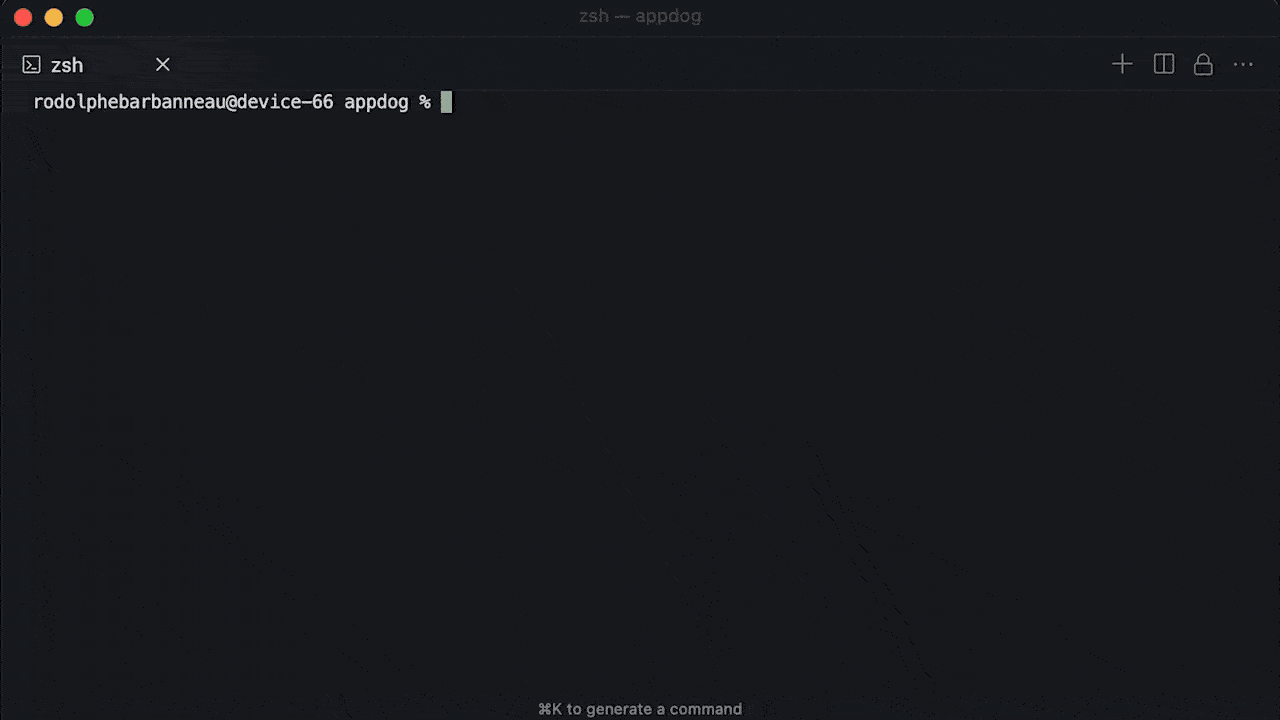About
AppDog is a Python-based tool that automatically generates Model Context Protocol (MCP) servers from OpenAPI specifications, enabling fast, asynchronous API development.
Capabilities

AppDog addresses the friction that often accompanies the integration of RESTful APIs into AI‑driven applications. By taking an OpenAPI specification as its single source of truth, AppDog automatically produces fully typed Python clients and a ready‑to‑run MCP (Model Context Protocol) server. This removes the need for manual client scaffolding, version drift, and repetitive configuration across projects, allowing developers to focus on business logic rather than boilerplate.
At its core, AppDog generates a Python package that mirrors the structure of an OpenAPI schema. Each endpoint becomes an async method with type‑annotated parameters and return values, while authentication details are injected via environment variables. The resulting client is immediately usable in both synchronous and asynchronous contexts, making it a drop‑in replacement for hand‑crafted wrappers. Beyond client generation, AppDog bundles a small CLI that lets teams add, remove, and lock API clients in a single repository. The lock file guarantees deterministic builds by recording exact spec hashes, ensuring that downstream consumers always hit the same API contract.
The standout feature is the automatic MCP server creation. With a single command, AppDog compiles all registered API clients into an MCP service that exposes each endpoint as a tool. The server can be deployed, run locally, or launched in development mode with an inspector for debugging. Because the server is generated from the same OpenAPI spec, it inherits all type safety and documentation, reducing runtime errors when AI assistants invoke external services. This tight coupling between specification, client, and MCP server eliminates the classic “contract mismatch” problem that plagues many API integrations.
In practice, AppDog shines in scenarios where AI assistants need to fetch data from multiple third‑party services. For example, a chatbot that aggregates product information from several e-commerce APIs can rely on AppDog to expose each catalog as a tool, while the assistant’s prompt engine selects the appropriate one based on user intent. Similarly, data‑driven pipelines that stitch together weather, financial, and social media APIs can use AppDog to guarantee consistent schemas across all stages. The generated MCP server also makes it trivial to expose internal services to external agents, enabling cross‑team automation without writing custom adapters.
Because AppDog’s output is pure Python and its MCP server uses FastMCP, developers can seamlessly embed the generated tools into existing frameworks or CI/CD workflows. The ability to lock API specifications, coupled with automatic client regeneration, ensures that AI agents always interact with the correct API version—an essential requirement for production‑grade AI services.
Related Servers
n8n
Self‑hosted, code‑first workflow automation platform
FastMCP
TypeScript framework for rapid MCP server development
Activepieces
Open-source AI automation platform for building and deploying extensible workflows
MaxKB
Enterprise‑grade AI agent platform with RAG and workflow orchestration.
Filestash
Web‑based file manager for any storage backend
MCP for Beginners
Learn Model Context Protocol with hands‑on examples
Weekly Views
Server Health
Information
Explore More Servers
Sketch Context MCP
Bridge Sketch designs to IDEs with real‑time AI workflows
Persistproc
Shared process layer for multi‑agent workflows
Notion MCP Server
Seamless Notion integration for LLMs
Pipedrive MCP Server
Integrate Claude with Pipedrive via Model Control Protocol
Newsbang MCP
Real‑time news intelligence for smarter decisions
PagerDuty MCP Server
LLM‑powered PagerDuty API integration